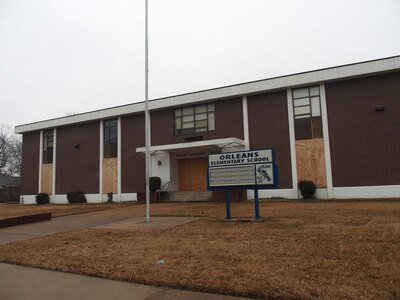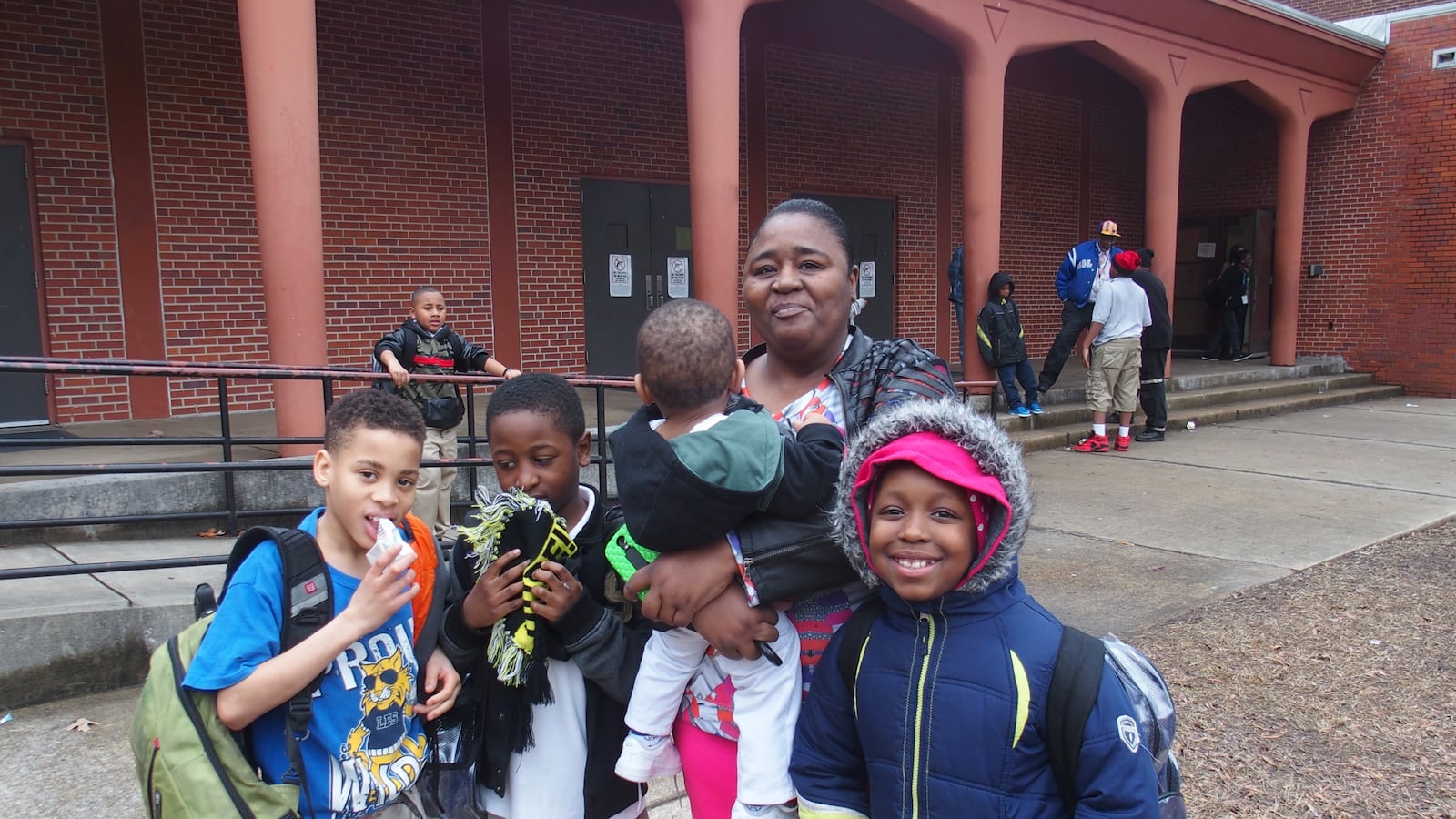Over the years, teachers at Orleans Elementary School in Memphis came to learn Jazmea Partee’s study habits, quirks and mood changes. Concerned whenever she missed school, they even texted her mother to check on their student.
But after Jazmea completed third grade in 2012, Orleans was closed by administrators with the former Memphis City Schools. Along with her classmates, she was moved to Lincoln Elementary, a school around the corner. In the shuffle, however, Jazmea lost track of teachers and friends, and her grades suffered.
“I hated when they closed that school,” said her mother, Shawn Partee. “It was hard for Jazmea. Everybody got split up.”
Like Jazmea, students like Jaylan Jones haven’t thrived with change. Since moving to Lincoln after his first-grade year at Orleans, he has struggled with schoolwork and conduct. “That transition was really difficult,” recalled Anita Smith, his grandmother.
Test scores at Lincoln Elementary dipped last year. Now, district administrators are targeting to close that school as well and send its students to A.B. Hill Elementary.
In Memphis, closures of underperforming schools have become an annual affair, especially in the wake of the historic 2013 merger of Memphis City Schools with Shelby County Schools. The idea behind the school closings is both to save money through consolidation and move students out of struggling schools and into better ones.
However, multiple studies show that students moved from recently closed schools don’t consistently experience test score gains. In fact, in cases such as Jazmea’s and Jaylan’s, their scores suffer.
While no specific available data addresses scores for Memphis children who have been moved due to school closings, all but one of the schools that received students from closed schools experienced significant drops in test scores. Lincoln suffered the district’s largest drop, with half as many students meeting the state’s math standards in 2013 than had in 2012.
According to educators and experts, students who are moved – and their families – often fumble attempts to navigate unfamiliar settings. They struggle to tap into resources such as counseling services, tutoring and after-school programs. Meanwhile, teachers must attempt to gauge their new students’ academic levels and then seek to catch them up with the rest of the class.
More closures
The Board of Education of Shelby County Schools is scheduled to decide March 31 whether to close Lincoln Elementary and South Side Middle schools as part of Superintendent Dorsey Hopkins’ latest plan to save money and boost test scores. Under the proposal, hundreds of other students would be pulled from at least three other schools and sent to surrounding schools. In all, the plan could affect 2,030 students.
Over the last three years, board members with Memphis City and Shelby County schools have closed 16 schools, impacting 3,555 students.

Board members say they are concerned about the well-being of students who are affected, in addition to the neighborhoods that are impacted.
“We live and die by data,” said chairwoman Teresa Jones, posing a list of concerns. “What’s happening to children that have been merged with children in the past? Are they getting better instruction? In a better facility? Are they getting the extra help that they need?”
Under the latest plan, administrators propose sending all of the impacted students to the district’s Innovation Zone, also known as the iZone, a cluster of schools that have received millions of city, state and federal dollars to hire more effective teachers, add hours onto the school day, and implement other academic interventions. It’s the district’s most expensive turnaround effort yet.
“This is truly, in my mind, about student achievement and investing in neighborhoods that have been neglected for a long time,” Hopson said about the iZone at a recent board meeting. “The reality is that these kids need extra help. By combining these schools and using a framework that’s proven, undeniably working, we’re going to get them that help. We believe we will improve their educational experience and put them on track to be some of the good stories in 2025.”
While the ultimate goal is eventually to boost student test scores, the act of closing schools has unintended consequences, according to research.
A study published in 2012 in the Journal of Urban Economics tracked an unidentified district in the Northeast that closed several academically struggling schools and sent the students to schools with higher value-added test scores. The scores of students who were moved actually dipped in their new school, where many of their former teachers also were moved.
Ronald Zimmer, a researcher who worked on the study at Vanderbilt University’s Peabody College of Education and Human Development, notes that the district failed to rid itself of teachers at the old school who were partially responsible for the low test scores – a crucial mistake, he said.
“The key here, it was only an effective strategy if [the schools they were sent to] were dramatically better in achievement,” Zimmer said. “Otherwise, it has an adverse effect for students in the short term. It could be the lack of stability or being in the same peer environment. Our conclusion was that if you have to close schools, it’s not a terrible strategy, but you have to get them in much better schools for there not to be adverse effects for students.”
In Memphis’ iZone schools, all teachers have had to reapply for their jobs, and only top-performing teachers are hired back. During a February presentation to parents, administrators used colorful charts to show how much more their children should learn at their new iZone schools.
“We think it’s a blessing that you may be joining our schools,” Sharon Griffin, the iZone’s regional superintendent, told parents.
Welcoming strategies
Another study conducted by the University of Chicago Consortium on Chicago School Research found that many students whose schools were closed in Chicago in 2013 didn’t attend the new school they were sent to because of transportation hurdles and feeling unwelcome, said Molly Gordon, an analyst who worked on the study.
“Did they have open houses, welcome new families in?” Gordon asked. “We noticed welcoming schools got a huge influx of students. Oftentimes, families are upset because they’re losing after-school programs and support services in closed schools.”
Griffin said she was impressed that some Memphis schools held open houses for parents and teachers moving from 10 schools closed last year by Shelby County Schools. She said those welcoming strategies potentially could be replicated at schools receiving new students from schools targeted for closure at the end of this school year.
For Jazmea, who is now 11 and finishing the fifth grade, school life seems to be stabilizing again. She struggles with division in math class but is being tutored in the subject. She’s made new friends through the school’s majorette squad, and her mother is getting to know new teachers. Next year, Partee plans to send her daughter to Soulsville, a charter school across town that offers an after-school dance program.
“The biggest concern to me is having the kids be with better teachers – more teachers that care,” Partee said. “It’s difficult every time they close a school.”
Contact Daarel Burnette II at dburnette@chalkbeat.org or (901) 260-3705.
Follow us on Twitter: @Daarel, @chalkbeattn.
Like us on Facebook.
Sign up for our newsletter for regular updates on Tennessee education news.

